Category: Monitoring & Evaluation

User-centered evaluation of the Vietnam National Immunization Information System: Challenges and benefits
Jul 30, 2021
Electronic immunization registries (EIRs) are defined as “confidential, computerized, population-based systems that collect and consolidate vaccination data from vaccination providers for better immunization strategies.” And evidence suggests that EIRs can help increase vaccination coverage.
Read More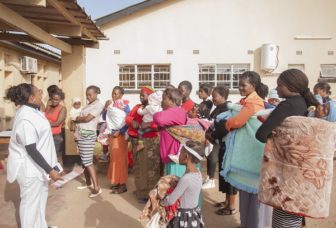
New white paper spotlights the role of digital tools and adaptive management for navigating complex health challenges
Feb 22, 2021
As the world grappled with the global COVID-19 pandemic, many health professionals and health systems turned to adaptive management to respond to a rapidly evolving situation and its complex challenges. Faced with a strained workforce, supply shortages, and economic losses, adaptive management is an approach that embodies intentional testing and learning to navigate change and uncertainty. It has emerged from the interdisciplinary need and understanding that complex development issues and multi-stakeholder environments require agile solutions.
Read More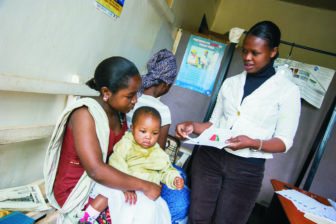
Using electronic immunization registry data to demonstrate the value of digital systems
Sep 23, 2020
A growing number of countries have embraced electronic immunization registries (EIRs) that enable data-driven decision-making. To better shape the value proposition for countries using or considering using EIRs, the BID Initiative has started a new scope of work led by a global BID Analytics team that will use data from the digital systems in Tanzania. The work builds on previous landscaping and stakeholder conversations held in late 2019 and early 2020, to summarize common immunization barriers and the EIR features that help respond to these challenges.
Read More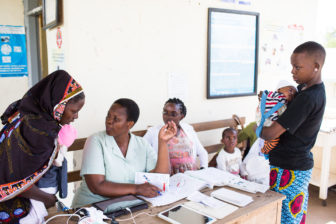
Going beyond denominators: Defining the value of electronic immunization registries to solve for health system barriers
Aug 27, 2020
Data can make the invisible visible. More complete, reliable, and real-time information on health trends, coverage rates, and service gaps can help strengthen health systems and better allocate precious resources. This fact has been recognized by a growing number of countries embracing electronic immunization registries (EIRs) to help monitor individual immunization schedules and vaccination histories. But even as countries adopt EIRs and understand their value, there are many questions about how best to implement them, as well as their effectiveness, cost, and impact on health outcomes.
Read More
Journal article assesses the costs and savings of introducing electronic immunization registries
Aug 7, 2020
As COVID-19 squeezes health systems, clinics and hospitals around the world are finding themselves strained by the global pandemic. Digital and data systems can help countries respond to these evolving health trends and demands. A recent journal article about the BID Initiative, published in the Pan African Medical Journal, assesses the incremental costs of implementing electronic immunization registries (EIRs) in Tanzania and Zambia. Using data from both countries, BID conducted a micro-costing study about the service delivery and logistical costs of EIRs.
Read More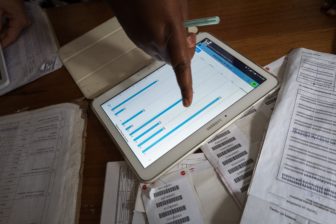
BID by the numbers: New data reveals time-savings, more empowered decision-making among health workers
Nov 29, 2018
Beatrice Owawa is a Reproductive and Child Health nurse at the Usa River Health Center in Tanzania, one of more than 1,500 health facilities implementing data quality and use interventions across Tanzania and Zambia in partnership with the BID Initiative. As she toggles between dashboards on her tablet, you would never know it, but Beatrice used to depend on pen and paper for documenting her facility’s immunization clinics.
Read More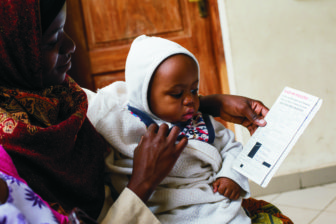
New immunization data reveals state of the field and the important role of data in vaccination
Aug 24, 2018
Last month, the World Health Organization (WHO) released new immunization data from 2017 that reveals global progress toward immunization targets, and where countries and stakeholders are still falling short. Nine in 10 infants were vaccinated last year, or 123 million babies worldwide. But since 2015, the percentage of children around the world who have received the full three-dose course of diphtheria-tetanus-pertussis (DTP3), has leveled out at 85 percent. DTP3 is a key indicator of immunization program performance.
Read More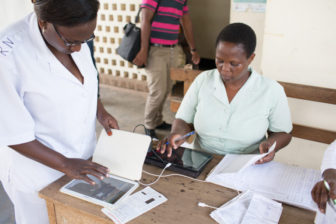
BID analytics: Leveraging data from electronic immunization registries for meaningful insights
Aug 9, 2018
The electronic immunization registries (EIRs) introduced under the BID Initiative in Tanzania and Zambia have now been scaled to 1,571 health facilities (1,273 in Tanzania; 298 in Zambia). Every day health workers are registering new children into the EIRs and capturing their birth date, their caregiver’s contact information, and the dates they received their last vaccine. More than 467,105 children have been registered into the Tanzania Immunization Registry (TImR) and more than 96,383 children have been registered into the Zambia Electronic Immunization Registry (ZEIR). That’s a lot of data that was previously unavailable above the facility level. But what can we learn from this new information?
Read More
BID Initiative digs into data at Teach to Reach workshop
May 23, 2018
Earlier this month, PATH and the BID Initiative participated in the “Teach to Reach: Innovative Methods for Immunization Training” workshop in Dar es Salaam, Tanzania from May 1-3. This three-day hands-on forum provided participants with an opportunity to use a design-thinking approach to tackle issues related to workforce performance within immunization programs. Approximately 100 participants from Tanzania, Ethiopia, Nigeria, Pakistan, India, and other global partners attended the workshop. BID participated in a number of sessions, including a well-received demonstration of the Tanzania Immunization Registry (TImR) during the opening night of the workshop.
Read More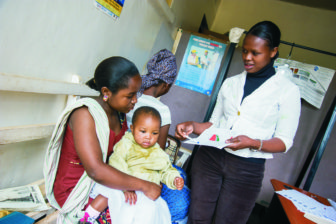
Planning for compasses, not maps: BID celebrates a culture of learning, applies principles of adaptive management
Mar 16, 2018
Beatrice Owawa’s fingers dance across the screen of her tablet. She nimbly jumps from one window to the next, as she checks vaccine records and stock levels in the Tanzania Immunization Registry (TImR) at Usa River Health Center in Arusha, where she works as a medical attendant. When Beatrice pulls up a list of young patients who have recently missed their vaccines, she takes down their names and contact information and begins to call their caregivers. It may seem unremarkable, but the task of identifying patients who have fallen through the cracks used to be nearly impossible. Before TImR, Beatrice relied on paper registries to track “defaulters,” or patients who had missed a life-saving vaccine.
Read More